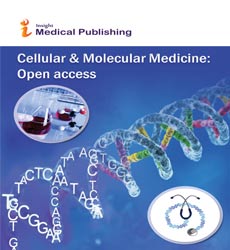Abstract
Nanomedicine As A Cancer Treatment
Traditional cancer treatments have inherent limitations, prompting the development and implementation of diverse nanotechnologies for more effective and safer cancer therapy, referred to as cancer nanomedicine. Although there has been significant technological progress in this field, the main roadblocks to nanomedicine becoming a new paradigm in cancer therapy are the complexities and heterogeneity of tumour biology, a lack of understanding of nano–bio interactions, and the chemistry, manufacturing, and control challenges that are required for clinical translation and commercialization. The progress is highlighted in this report. The increased interest in using nanotechnology to treat cancer is due to its unique advantages in drug administration, detection and imaging, synthetic vaccine generation, and small medical devices, as well as the therapeutic properties of particular nanomaterials. Several therapeutic nanoparticle (NP) platforms, such as liposomes, albumin NPs, and polymeric micelles, have been approved for cancer treatment, and many more nanotechnology-enabled therapeutic modalities, such as chemotherapy, hyperthermia, radiation therapy, gene or RNA interference (RNAi) therapy, and immunotherapy, are currently being studied in clinical trials. This insufficiency is caused by an autoimmune reaction in afflicted people, which results in the death of -cells by T-cells, resulting in hypoinsulinemia and hyperglycemia5. Unlike type 1 diabetes, type 2 diabetes is sometimes referred to be a "lifestyle disease".
Author(s):
Kirstine Christensen
Abstract | PDF
Share this

Google scholar citation report
Citations : 187
Cellular & Molecular Medicine: Open access received 187 citations as per google scholar report
Abstracted/Indexed in
- Google Scholar
- China National Knowledge Infrastructure (CNKI)
- Cosmos IF
- Geneva Foundation for Medical Education and Research
- Secret Search Engine Labs
Open Access Journals
- Aquaculture & Veterinary Science
- Chemistry & Chemical Sciences
- Clinical Sciences
- Engineering
- General Science
- Genetics & Molecular Biology
- Health Care & Nursing
- Immunology & Microbiology
- Materials Science
- Mathematics & Physics
- Medical Sciences
- Neurology & Psychiatry
- Oncology & Cancer Science
- Pharmaceutical Sciences

